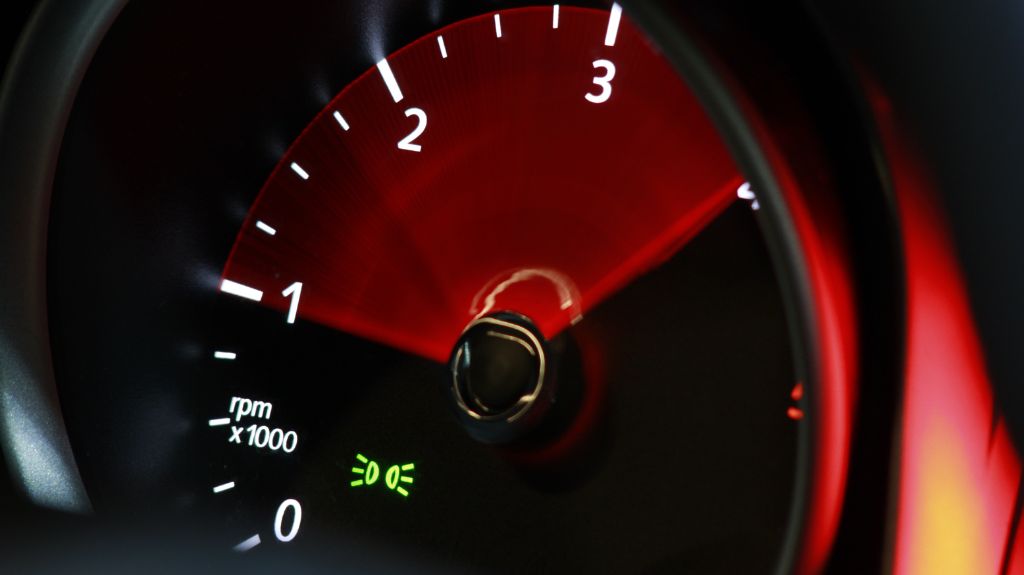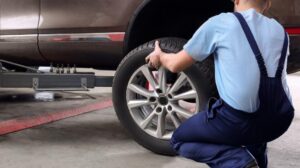Common Causes of Car Vibration During Acceleration
Experiencing car vibrations during acceleration can be both concerning and uncomfortable. This issue often stems from various components within the vehicle including the engine, transmission, driveshaft, and tires. Understanding the root cause is crucial for an effective solution.
One prevalent cause of car vibrations is engine-related issues. Engine misfires, for instance, can occur due to irregular fuel combustion, leading to an uneven performance that manifests as vibrations. Additionally, worn-out engine mounts can fail to properly secure the engine, causing noticeable shaking when accelerating.
The transmission system is another critical area that can contribute to vibrations. Problems such as worn-out or damaged transmission mounts, as well as issues with the torque converter, can disrupt the smooth transfer of power from the engine to the wheels, resulting in vibrations. It’s also important to note that low or contaminated transmission fluid can exacerbate these issues.
The driveshaft, responsible for transmitting torque from the transmission to the differential, can also be a source of vibration. Imbalances in the driveshaft, worn-out universal joints (U-joints), or damaged couplings can cause significant shaking, particularly during acceleration. Regular inspections are essential to prevent these problems from escalating.
Tire issues are perhaps the most common and easily identifiable cause of car vibrations. Uneven tire wear, improper alignment, or imbalanced tires can all lead to a bumpy ride. Symptoms to look out for include shaking steering wheels or vibrations that intensify at higher speeds. Ensuring proper tire maintenance can mitigate these issues.
By understanding these common causes, you can better diagnose and address car vibrations during acceleration. For further guidance, refer to this resource for diagnosing car vibrations.
How to Fix a Car that Shakes When Accelerating
Experiencing car vibrations during acceleration can be both frustrating and concerning. Fortunately, many of these issues can be diagnosed and resolved with some basic troubleshooting. Below, we will outline a step-by-step guide to help you identify and fix common causes of car vibrations.
Step 1: Check Tire Balance and Alignment
One of the most common reasons for a car to vibrate when accelerating is unbalanced or misaligned tires. Begin by inspecting your tires for uneven wear, bulges, or any visible damage. If the tires appear worn out or damaged, consider replacing them. Additionally, ensure that your tires are properly balanced and aligned. Misalignment and unbalanced tires can cause significant vibrations and affect the overall handling of your vehicle.
Step 2: Examine Engine Mounts
Engine mounts are designed to secure the engine to the chassis and absorb vibrations. Over time, these mounts can wear out or become damaged, leading to excessive vibrations. Inspect the engine mounts for signs of wear, cracks, or breaks. If you notice any issues, it is advisable to replace the mounts. This task may require professional assistance if you’re not comfortable working with engine components.
Step 3: Inspect the Driveshaft and CV Joints
The driveshaft and constant velocity (CV) joints are crucial components that transfer power from the transmission to the wheels. Wear and tear on these parts can lead to vibrations during acceleration. Check the driveshaft for any bends or damage and ensure that the CV joints are free from cracks and leaks. If you identify any problems, replacing the affected parts is necessary to restore smooth vehicle operation.
When to Seek Professional Help
While some issues causing car vibrations can be addressed through basic troubleshooting, certain problems may require professional expertise. If the vibrations persist despite your efforts, it is advisable to consult a qualified mechanic. They can perform a thorough diagnosis and recommend appropriate repairs, ensuring your vehicle’s safety and performance.
For more detailed information on car maintenance and troubleshooting, consider referring to our comprehensive car maintenance guide.
Understanding Why Your Car Vibrates When Pressing the Gas
Car vibrations during acceleration can be a perplexing issue, often stemming from various components within the vehicle’s powertrain. Primarily, these vibrations are influenced by the way engine power delivery, drivetrain efficiency, and fuel system performance interconnect. A detailed understanding of each element is crucial to diagnosing and addressing the root cause of the problem.
The engine’s power delivery is the initial factor to consider. When the gas pedal is pressed, the engine ramps up its power output. If any part of the engine is malfunctioning, such as spark plugs, ignition coils, or the timing belt, it can lead to uneven power delivery, causing vibrations. Additionally, any discrepancies in the engine mounts can result in noticeable shaking, as they are responsible for stabilizing the engine.
Next, the drivetrain’s efficiency plays a pivotal role. The drivetrain encompasses the transmission, driveshaft, and differential, which work together to transfer engine power to the wheels. Issues like a worn-out transmission mount, imbalanced driveshaft, or failing CV joints can disrupt this process, leading to vibrations when accelerating. Regular maintenance of these components is essential to ensure smooth power transfer.
Another significant factor is the fuel system performance. The fuel injectors must deliver the right amount of fuel to the engine for optimal performance. Clogged or malfunctioning fuel injectors can cause the engine to run lean or rich, resulting in vibrations. Inspecting and cleaning fuel injectors can often resolve this issue, ensuring a steady and efficient fuel flow.
For a more precise diagnosis, employing an OBD-II scanner to check for error codes is highly recommended. This tool can provide insights into specific areas of the engine or drivetrain that may be causing the vibrations. Additionally, manual inspection of the fuel injectors and other related components can help identify and rectify the issues.
For those interested in a more hands-on approach, a [detailed diagnostic tool guide](https://autoadvisor.online/auto-query/) can be invaluable. This resource offers comprehensive instructions for using various diagnostic tools and techniques, empowering car owners to troubleshoot and fix the vibration issues themselves.
Should You Be Worried About Car Vibrations?
Car vibrations during acceleration can be more than just a mild inconvenience; they often signal underlying issues that, if ignored, can lead to significant problems. The most immediate concern with car vibrations is the potential for further damage to critical components. For instance, issues with the drive shaft or transmission can escalate, resulting in costly repairs or complete system failures. In addition, worn-out engine mounts or misaligned wheels can exacerbate wear and tear on other parts, leading to a cascade of mechanical problems.
Addressing car vibrations promptly is not just a matter of maintaining your vehicle’s longevity; it’s also a crucial safety concern. Vibrations can affect your car’s handling and stability, making it more challenging to control, particularly at higher speeds. This can increase the risk of accidents, posing a danger to both the driver and other road users. Furthermore, issues like uneven tire wear can lead to blowouts, which are hazardous to navigate, especially on busy highways.
Timely repairs are essential to mitigate these risks. Minor adjustments, such as balancing tires or tightening loose components, might suffice in some cases. However, persistent or severe vibrations often require professional diagnostics and repair. A qualified mechanic can accurately identify the root cause and recommend the appropriate course of action. Delaying these assessments can turn what might have been a simple fix into a major repair job.
Knowing when to seek immediate professional assistance versus attempting minor adjustments yourself is crucial. If you experience sudden or severe vibrations, it’s advisable to stop driving and consult a mechanic immediately. For ongoing but less severe issues, scheduling a diagnostic check can help prevent future complications.
For those in need of reliable mechanics, we recommend consulting a trusted [service directory for finding reliable mechanics](https://autoadvisor.online/auto-query/). This can help ensure that you receive quality service and maintain the safety and performance of your vehicle.




